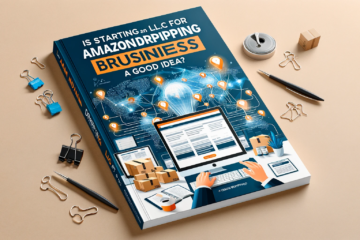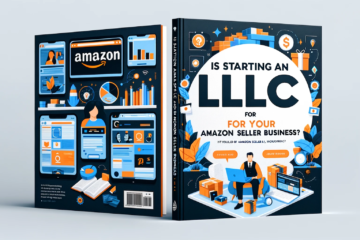If you’re passionate about providing healthy and nutritious food for little ones, starting an LLC for baby food could be the perfect venture for you.
In this article, we will guide you through the process of setting up your own baby food business, from conducting market research to registering your LLC.
Discover the benefits of starting an LLC for baby food and learn how to source quality ingredients and effectively market your products.
Get ready to embark on a rewarding journey in the world of baby food entrepreneurship.
Starting an LLC for baby food provides personal liability protection and separates personal assets from business liabilities. The LLC designation creates a professional and credible image, attracting more customers and potential partnerships or funding opportunities. Conducting market research, developing a comprehensive business plan, and identifying the target market are essential steps for success. Financial projections and analysis, including estimating costs and projecting sales volume, are crucial for ensuring viability and profitability.
Benefits of Starting an LLC for Baby Food
If you start an LLC for baby food, you’ll enjoy numerous benefits. One of the main advantages of LLC formation for your baby food business is personal liability protection. As the owner of an LLC, your personal assets will be separate from the business’s liabilities. This means that if your business faces financial difficulties or legal issues, your personal assets won’t be at risk. This protection provides peace of mind and allows you to focus on growing your business without the fear of losing everything you own.
Another benefit of starting an LLC for your baby food business is the flexibility in taxation. LLCs have the option to choose how they want to be taxed, either as a sole proprietorship, partnership, S corporation, or C corporation. This flexibility allows you to choose the tax structure that best suits your business’s needs and can potentially save you money on taxes.
Additionally, LLCs offer a more professional and credible image for your baby food business. By having the designation of an LLC, it shows potential customers and investors that you’re a serious and legitimate business. This can help you attract more customers and secure partnerships or funding opportunities.
Conducting Market Research for Your Baby Food Business
To effectively launch your baby food LLC and maximize its potential for success, it’s crucial to conduct thorough market research. Conducting surveys and competitor analysis are two essential components of this process.
Conducting surveys allows you to gather valuable insights about your target market’s preferences, needs, and purchasing behavior. By asking the right questions, you can uncover valuable information that will help you tailor your baby food products to meet the specific demands of your customers. Surveys can be conducted through online platforms, social media, or even in-person interviews.
In addition to surveys, competitor analysis is equally important in understanding the market landscape. By studying your competitors, you can identify their strengths, weaknesses, and strategies. This information will enable you to position your baby food products effectively and differentiate yourself from the competition. By offering unique features or addressing gaps in the market, you can attract customers who are looking for alternatives to existing baby food products.
Creating a Solid Business Plan for Your LLC
To create a solid business plan for your LLC, there are several essential components you need to consider.
Firstly, you should clearly identify your target market and understand their needs and preferences.
Additionally, it’s crucial to include financial projections and analysis to demonstrate the viability and profitability of your baby food business.
Essential Components of Plan
Start by outlining the essential components of your business plan for your LLC, ensuring that you include all crucial details. A solid business plan is the foundation for any successful venture, and it’s especially important when starting an LLC for baby food.
The essential components of your plan should include a clear and concise executive summary, a detailed market analysis, a comprehensive marketing strategy, a thorough description of your products and services, an organizational structure, a financial projection, and a risk management plan.
Identifying Target Market
Identify your target market to create a solid business plan for your LLC specializing in baby food. Conducting target audience research and market segmentation analysis are crucial steps in understanding the needs and preferences of your potential customers.
To begin, gather information about your target audience. This includes demographics such as age, gender, and location, as well as psychographics such as lifestyle, values, and interests. Understanding these factors will help you tailor your products and marketing strategies to meet their specific needs.
Next, conduct a market segmentation analysis to categorize your target market into distinct groups based on shared characteristics. This will enable you to customize your offerings and messaging to each segment, maximizing your chances of success.
Financial Projections and Analysis
Develop a comprehensive financial plan to ensure the success of your LLC specializing in baby food.
Financial forecasting is crucial in determining the viability and profitability of your business.
Start by estimating the costs involved in product development, production, marketing, and distribution. Consider factors such as raw materials, packaging, labor, and overhead expenses.
Analyze market trends and competition to identify potential sales and revenue streams. Conduct a competitive analysis to understand your target market and determine pricing strategies that will allow you to remain competitive.
Project your sales volume and revenue based on market research and industry benchmarks.
Additionally, create a cash flow statement to track your inflows and outflows of funds.
Registering Your LLC and Obtaining the Necessary Licenses
To start your LLC for baby food, you need to go through the LLC registration process. This involves filing the necessary paperwork with the appropriate state agency and paying the required fees.
Additionally, you’ll need to obtain the necessary licenses and permits to legally operate your baby food business. Make sure to research and comply with all the legal considerations for your LLC to ensure a smooth and compliant operation.
LLC Registration Process
Register your LLC and obtain the necessary licenses for starting your baby food business.
Before registering your LLC, it’s essential to conduct market research to understand the demand for baby food in your target market. This will help you identify potential customers, competitors, and market trends.
Additionally, creating financial projections is crucial to determine the viability and profitability of your business. These projections should consider factors such as production costs, pricing, and potential sales volume.
Once you have completed the market research and financial projections, you can proceed with registering your LLC. This typically involves choosing a business name, filing the necessary paperwork with the appropriate state agency, and paying the required fees.
Additionally, you may need to obtain licenses and permits specific to the baby food industry, such as food handling permits or labeling certifications. Ensure that you comply with all regulations and requirements to operate your baby food business legally and successfully.
Required Licenses and Permits
Obtain the necessary licenses and permits to legally operate your baby food LLC.
To ensure compliance with licensing requirements, it’s vital to understand the permit application process. Start by researching the specific licensing requirements for producing and selling baby food in your state or country.
This may include obtaining permits from health departments or food safety agencies. Contact your local business regulatory agency to determine the necessary permits and licenses for your LLC. They’ll provide you with the appropriate application forms and guide you through the process.
Be prepared to provide detailed information about your business, such as your production methods, ingredients used, and packaging processes. Remember to complete all necessary paperwork accurately and submit it on time to avoid any delays in obtaining the required licenses and permits for your baby food LLC.
Legal Considerations for LLC
Once you have researched the specific licensing requirements and obtained the necessary permits for producing and selling baby food, it’s time for you to take the next step in starting your LLC. Registering your LLC and obtaining the necessary licenses are important legal considerations to protect your business and ensure compliance with regulations.
By forming an LLC, you can benefit from liability protection, which separates your personal assets from the company’s debts and liabilities. This means that, in the event of a lawsuit or financial issues, your personal assets, such as your home or savings, are generally protected.
To register your LLC, you need to select a unique name, file the necessary paperwork with the state, and pay the required fees. Additionally, depending on your location and the nature of your business, you may need to obtain specific licenses and permits to operate legally.
It’s crucial to consult with a lawyer or legal professional to ensure you meet all the legal requirements for your baby food business.
Sourcing Quality Ingredients for Your Homemade Baby Food
To ensure the highest quality for your homemade baby food, prioritize sourcing fresh and nutritious ingredients.
When it comes to sourcing organic ingredients, look for suppliers who prioritize sustainable and organic farming practices. Organic ingredients are free from harmful pesticides and chemicals, making them a healthier choice for your little one.
Consider reaching out to local farmers and farmers’ markets in your area, as they often offer a wide range of organic produce. Building relationships with local suppliers not only supports your community but also ensures that you have access to the freshest ingredients available.
Local suppliers can provide you with seasonal fruits and vegetables, which are packed with nutrients and offer a variety of flavors for your baby’s developing palate. Additionally, they may have specialty items like organic grains or meats that are essential for a well-rounded baby food menu.
When sourcing your ingredients, always prioritize freshness and quality to provide the best nutrition for your baby.
Marketing and Promoting Your Baby Food LLC
When marketing and promoting your Baby Food LLC, focus on creating a strong brand identity that resonates with your target audience.
A key aspect of marketing your business is utilizing online advertising and social media marketing strategies. With the rise of digital platforms, it’s essential to establish a strong online presence to reach a wider customer base.
Online advertising allows you to target specific demographics and locations, ensuring that your message reaches the right audience. Utilize platforms such as Google Ads or Facebook Ads to create targeted campaigns that highlight the benefits of your baby food products. Consider using keywords related to organic, nutritious, and convenient baby food to attract health-conscious parents.
In addition to online advertising, social media marketing can be an effective way to engage with your audience. Create compelling content that showcases the quality and benefits of your baby food products. Use platforms like Instagram and Facebook to share recipes, tips, and parenting advice that aligns with your brand. Encourage customers to share their experiences and reviews to generate word-of-mouth promotion.
Remember, consistency is key in building your brand identity. Maintain a cohesive visual identity across all marketing channels, including your website, social media profiles, and advertising campaigns.
Conclusion
Starting an LLC for your baby food business can provide numerous benefits, such as legal protection and tax advantages.
By conducting market research and creating a solid business plan, you can ensure the success of your venture.
Registering your LLC and obtaining the necessary licenses is crucial to comply with regulations.
Sourcing quality ingredients for your homemade baby food will help you stand out in the market.
Lastly, effective marketing and promotion strategies will help your baby food LLC thrive in a competitive industry.
Frequently Asked Questions
What Are the Potential Health Benefits of Homemade Baby Food Compared to Store-Bought Options?
Homemade baby food has potential health benefits such as freshness and control over ingredients. However, store-bought options may provide nutritional advantages like added vitamins and minerals. Consider both options for your baby’s well-being.
How Can I Ensure the Safety and Quality of the Ingredients Used in My Homemade Baby Food?
To ensure the safety and quality of ingredients for your homemade baby food, conduct thorough research on suppliers, purchase organic produce, and follow proper food handling and storage practices. Homemade baby food benefits include control over ingredients and freshness.
Are There Any Specific Regulations or Guidelines I Need to Follow When Manufacturing and Packaging Baby Food?
When starting an LLC for baby food, specific regulations and guidelines must be followed. These include manufacturing and packaging guidelines, safety standards, and quality control measures to ensure the safety and quality of your products.
What Are Some Effective Marketing Strategies to Reach and Attract Parents to My Baby Food Llc?
To effectively market your baby food LLC and attract parents, focus on parent-targeted advertisements and leverage social media marketing. Use platforms like Facebook and Instagram to showcase your products and engage with your target audience.
How Can I Differentiate My Baby Food LLC From Competitors and Establish a Unique Selling Proposition in the Market?
To differentiate your baby food LLC and establish a unique selling proposition, focus on developing innovative recipes, using high-quality organic ingredients, and highlighting the nutritional benefits of your products. Utilize effective branding and marketing strategies to reach and attract parents.
This article is created with the aid of automated technology and then carefully reviewed and verified for accuracy by our professional editors.








